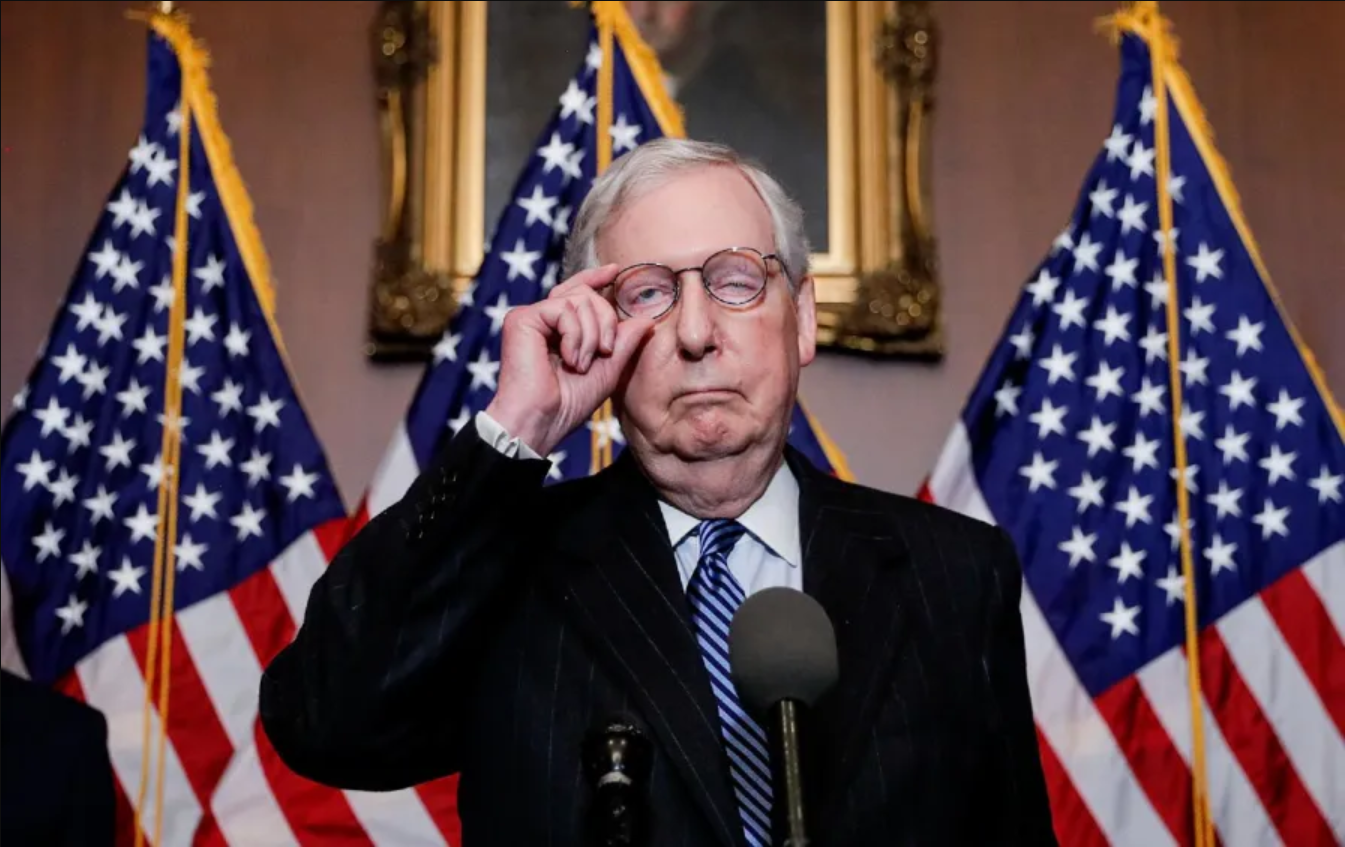“No” - The Defining Word of the Republican Party
Former president Barack Obama’s “Yes We Can” speech in 2008 sought to embody appeals to the aspirations and optimism of the American people. Obama’s message largely rang true with US citizens who elected him as president in a landslide in November 2008.
The current Republican Party proposes the antithesis: a message that does not appeal to hope or the betterment of American lives but to the obstruction of any reform.
Their platform presently stands for the word “no.” The GOP expresses an intransigence to side with the Democrats on a probe into the January 6 insurrection, COVID-19 guidelines and relief, a $15 minimum wage, a public option for healthcare, climate change action, tax reform, and Deferred Action for Childhood Arrivals (DACA).
Ostensibly, Republicans are poised to return to their obstructionist form of political posturing during President Obama’s second term of office. The goal of the GOP is entirely selfish: to make the country entirely ungovernable, with the hope that voters will reject the current governing party at the next polls and side with them. This strategy necessitates little cooperation with the Democrats to improve the security and welfare of the American population, which is the arguable primary role of elected representatives.
The fundamental role of all political parties has and must continue to be the proposal of public policy ideas. Currently, the GOP does not fit this definition, providing no alternative to the refusal of the Democratic Party’s agenda other than empty rhetoric.
While some will argue that Republicans do not hold any branch of the legislative or executive government, it is still the role of opposition parties to propose alternative policies. In Australia, the Labor Party, whilst in opposition, effectively authored the legislation surrounding pandemic relief (known as JobKeeper) and has proposed a $300 incentive payment to those who are vaccinated. There is no reason to suggest the GOP cannot propose policy whilst in a minority to add alternative ideas.
Additionally, the Democrats expressed a willingness to work with Republicans and Trump on criminal justice reform, culminating in the bipartisan First Step Act. After much deliberation, Democrats also sided with Trump on a $US2.3 trillion coronavirus relief bill.
The GOP appears to share little of this sentiment. The obstructionist Republicans, recognizing the Democrats hold the Senate by a knife-edge, know they can stymie any bill through the filibuster mechanism. This forces the Democrats to enact policy through budget reconciliation (as occurred in the American Rescue Plan), which can only be utilized a maximum of three times a year.
“Policy has been cast out to the fringes of Republican Party priorities, with optics, obstructionism, conspiracy, and mistruth taking center frame. ”
The result of this is a relatively stagnant landscape of American policy. Governing the country through concrete policy will be increasingly difficult for the Democrats even though they have a clear election mandate (of 81 million votes for President Biden) to enact reform.
The most unfortunate aspect of the GOP’s “no-ism” is that the strategy could prove successful with Republican voters. The Republican base appears completely entrenched in Fox News’ and Newsmax’s world of alternative facts, still believing, for instance, that the election was robbed from Trump. To this effect, substantive policy comes second to the GOP’s rhetoric.
Beyond Trump’s reign and influence on the party, the days of George W. Bush’s “compassionate conservatism” and Ronald Reagan’s small-government liberalism are over. The neoconservative and neoliberal aspects of the GOP, supporting free trade and liberal internationalism, have died under Trump.
While many would oppose these ideologies and the policies that accompany such a standpoint, at least the previous iteration of the GOP had a constructive vision for the United States. During Trump’s Presidency, his policy program of deregulation, denial of climate and COVID-19 science, withdrawal from international institutions, and protectionism strongly embodied the characteristics of ‘no-ism.’
Without Trump in office, the only function of the Republican Party is to strike down any proposal from the Democrats, and their policy alternative is, well, nothing. Policy has been cast out to the fringes of Republican Party priorities, with optics, obstructionism, conspiracy, and mistruth taking center frame.
America is left with an increasingly illiberal, populist party that is skeptical of the political institutions, multilateralism, and the position of the US as a global leader.
The path out of the dichotomy of Democratic proposals for reform and Republican rejection is the hope that the 2022 midterms afford the Democratic party a larger majority in the legislature. However, with history against them, and little policy gains to show (due to the Republican efforts), the opposite seems more likely.

